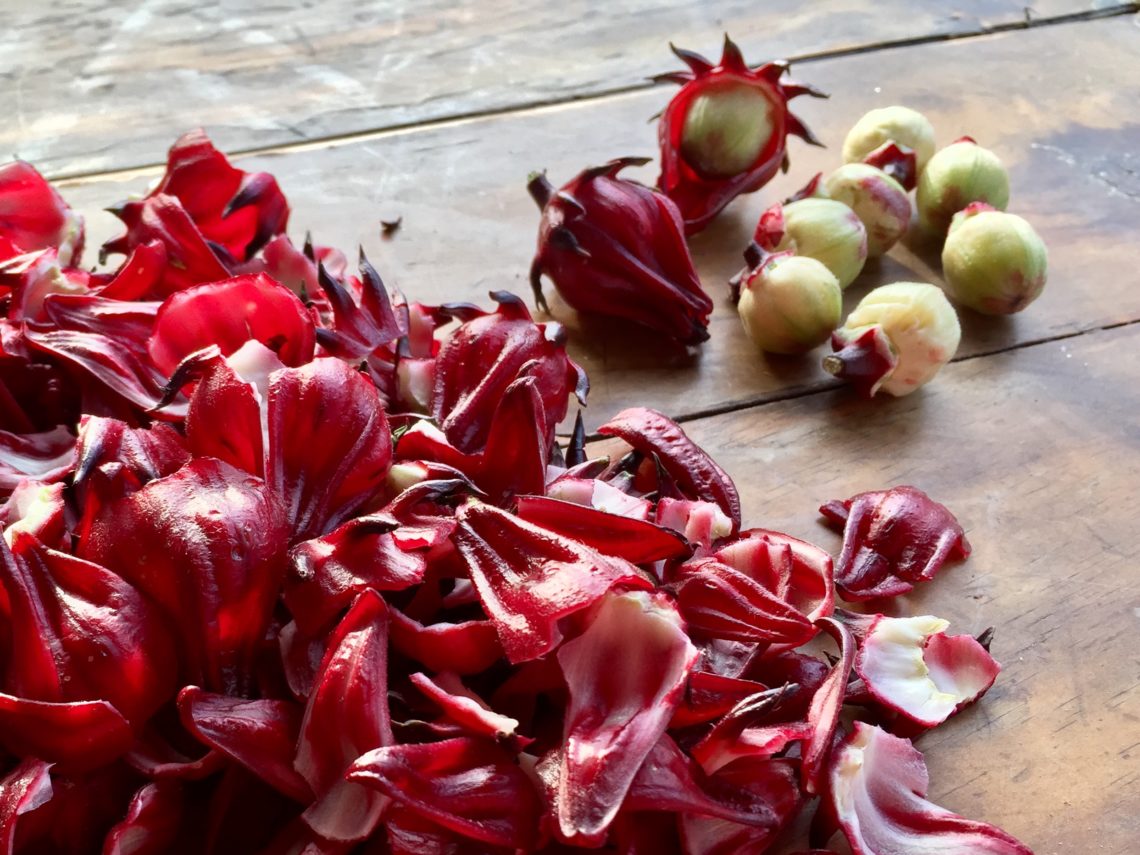Health Benefits of Hibiscus
What are the health benefits of hibiscus?
Hibiscus is a flowering plant that is widely known for its vibrant flowers and numerous health benefits. The most common type of hibiscus used for its health benefits is Hibiscus sabdariffa, also known as Roselle. Here are some of the potential health benefits of hibiscus:
- Rich in Antioxidants: Hibiscus flowers are rich in antioxidants, including flavonoids, phenolic compounds, and anthocyanins. These antioxidants help protect the body against oxidative stress by free radicals and reduce the risk of chronic diseases such as heart disease, diabetes, and cancer.
- May Help Lower Blood Pressure: Several studies suggest that hibiscus tea may help lower blood pressure. It is believed to have a diuretic effect, which means it helps the body get rid of excess fluid, thus reducing the volume of blood in the arteries and lowering blood pressure.
- May Improve Heart Health: The antioxidants in hibiscus tea may help improve heart health by reducing inflammation and oxidative stress. Some studies have also shown that hibiscus tea may help lower levels of LDL cholesterol (the “bad” cholesterol) and triglycerides.
- May Aid in Weight Loss: Hibiscus tea is low in calories and has a natural diuretic effect, which may help promote weight loss. It can also help reduce water retention and bloating.
- May Help Lower Blood Sugar Levels: Some studies suggest that hibiscus extract may help lower blood sugar levels and improve insulin sensitivity, which could be beneficial for people with diabetes.
- May Have Antimicrobial Properties: Hibiscus extract has been shown to have antimicrobial properties, which means it may help fight bacteria and other pathogens. This could help prevent infections and improve overall health.
- May Help Improve Liver Health: Some animal studies suggest that hibiscus extract may help protect the liver and improve its function. More research is needed to confirm these effects in humans.
- Rich in Vitamin C: Hibiscus is a good source of vitamin C, which is important for immune function, skin health, and wound healing.
- May Help Reduce Menstrual Pain: Some studies suggest that hibiscus tea may help reduce menstrual pain and cramps due to its anti-inflammatory properties.
It’s important to note that while hibiscus offers many potential health benefits, more research is needed to fully understand its effects on human health. Additionally, hibiscus supplements or extracts may interact with certain medications, so it’s important to consult with a healthcare provider before adding hibiscus to your routine, especially if you have any underlying health conditions or are taking medications.
What are the health risks of hibiscus?
While hibiscus is generally safe for most people when consumed in moderate amounts, there are some potential health risks to be aware of:
- Possible Drug Interactions: Hibiscus may interact with certain medications, including antihypertensive drugs (blood pressure-lowering medications) and diabetes medications. It can enhance the effects of these medications, potentially leading to low blood pressure or low blood sugar levels. If you are taking any medications, especially for blood pressure or diabetes, consult with your healthcare provider before consuming hibiscus.
- Pregnancy and Breastfeeding: There is limited information on the safety of hibiscus during pregnancy and breastfeeding. Some studies suggest that hibiscus may have uterine stimulant effects and could potentially increase the risk of miscarriage. It’s best to avoid hibiscus if you are pregnant or breastfeeding, or consult with your healthcare provider before using it.
- Allergic Reactions: Some individuals may be allergic to hibiscus. If you have a known allergy to other plants in the Malvaceae family, such as marshmallow or mallow, you may also be allergic to hibiscus. Allergic reactions to hibiscus can range from mild symptoms like itching and swelling to more severe reactions like difficulty breathing or anaphylaxis in rare cases.
- Digestive Issues: In some people, hibiscus tea may cause digestive issues such as stomach upset, gas, or diarrhea, especially when consumed in large amounts. It’s best to start with a small amount to see how your body reacts.
- Potential Contaminants: Hibiscus products, especially those from unreliable sources, may be contaminated with pesticides, heavy metals, or other harmful substances. It’s important to choose high-quality, organic hibiscus products to minimize this risk.
- Blood Pressure Lowering Effects: While hibiscus tea is often promoted for its potential to lower blood pressure, this effect can be a risk for individuals with already low blood pressure. Consuming hibiscus tea along with medications that lower blood pressure could potentially cause blood pressure to drop too low.
Overall, hibiscus is considered safe for most people when consumed in moderation as a beverage or food ingredient. However, if you have any concerns or underlying health conditions, it’s best to consult with your healthcare provider before adding hibiscus to your diet.




